Youth Drive the Discussion on Change during In-Person Meeting


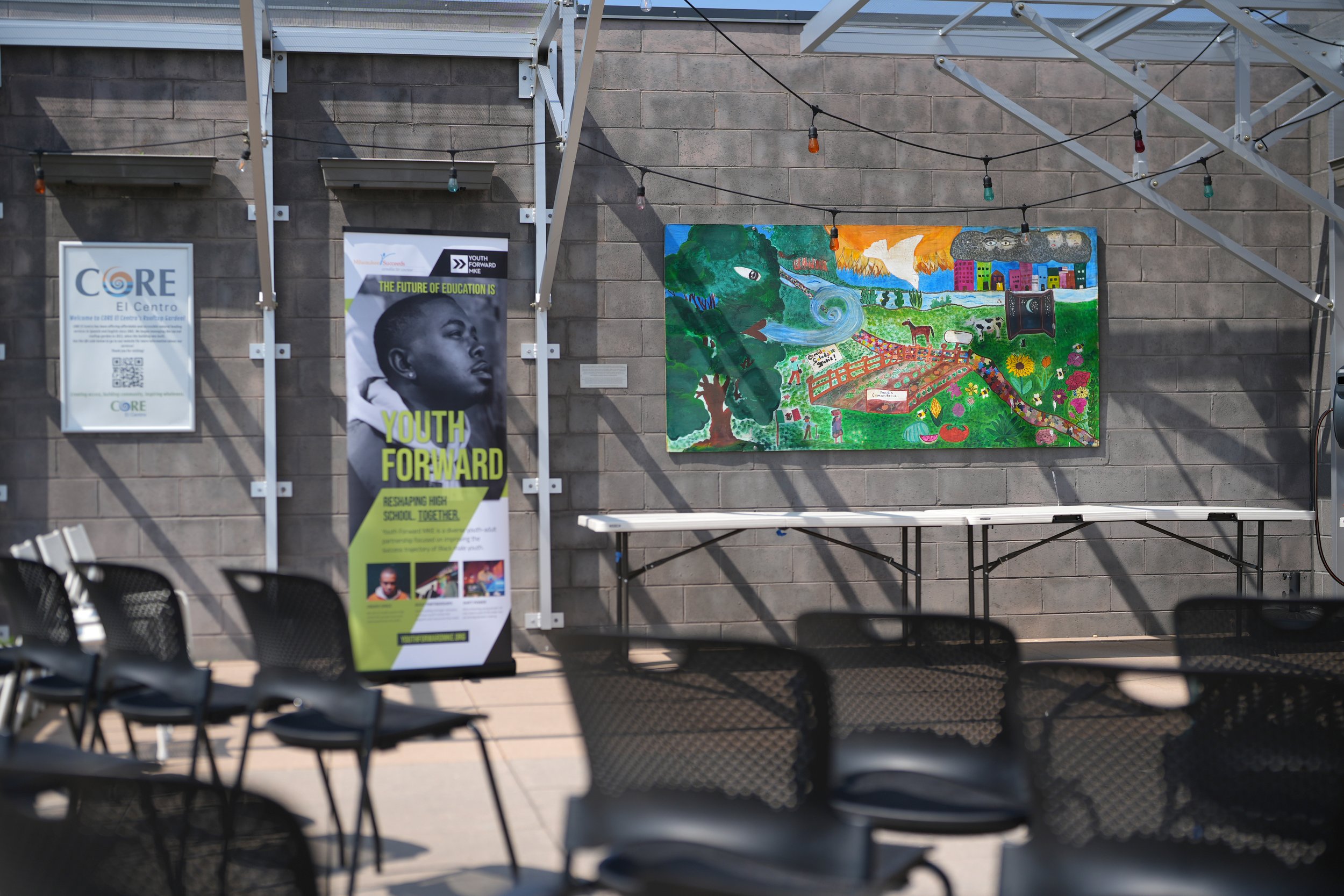
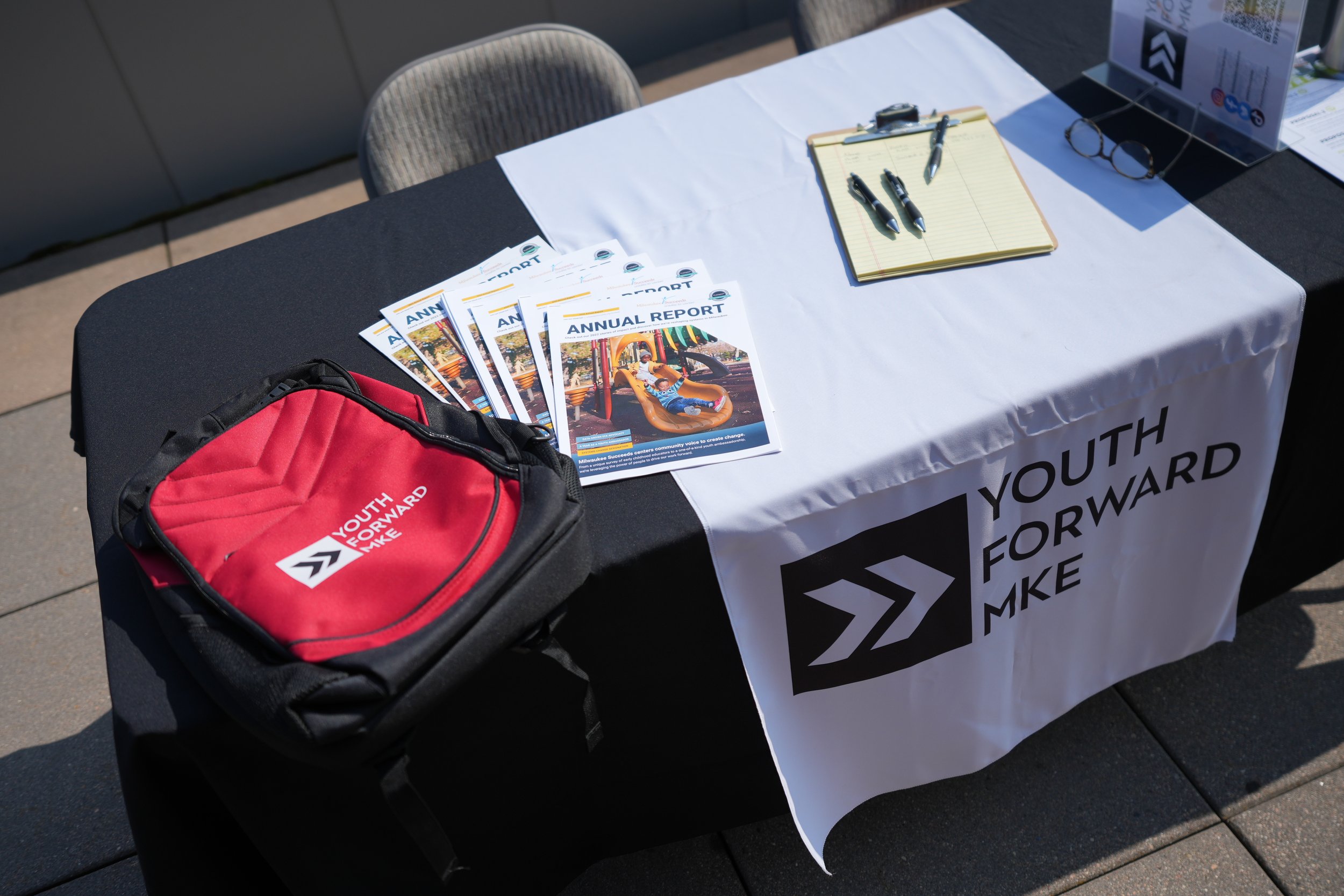
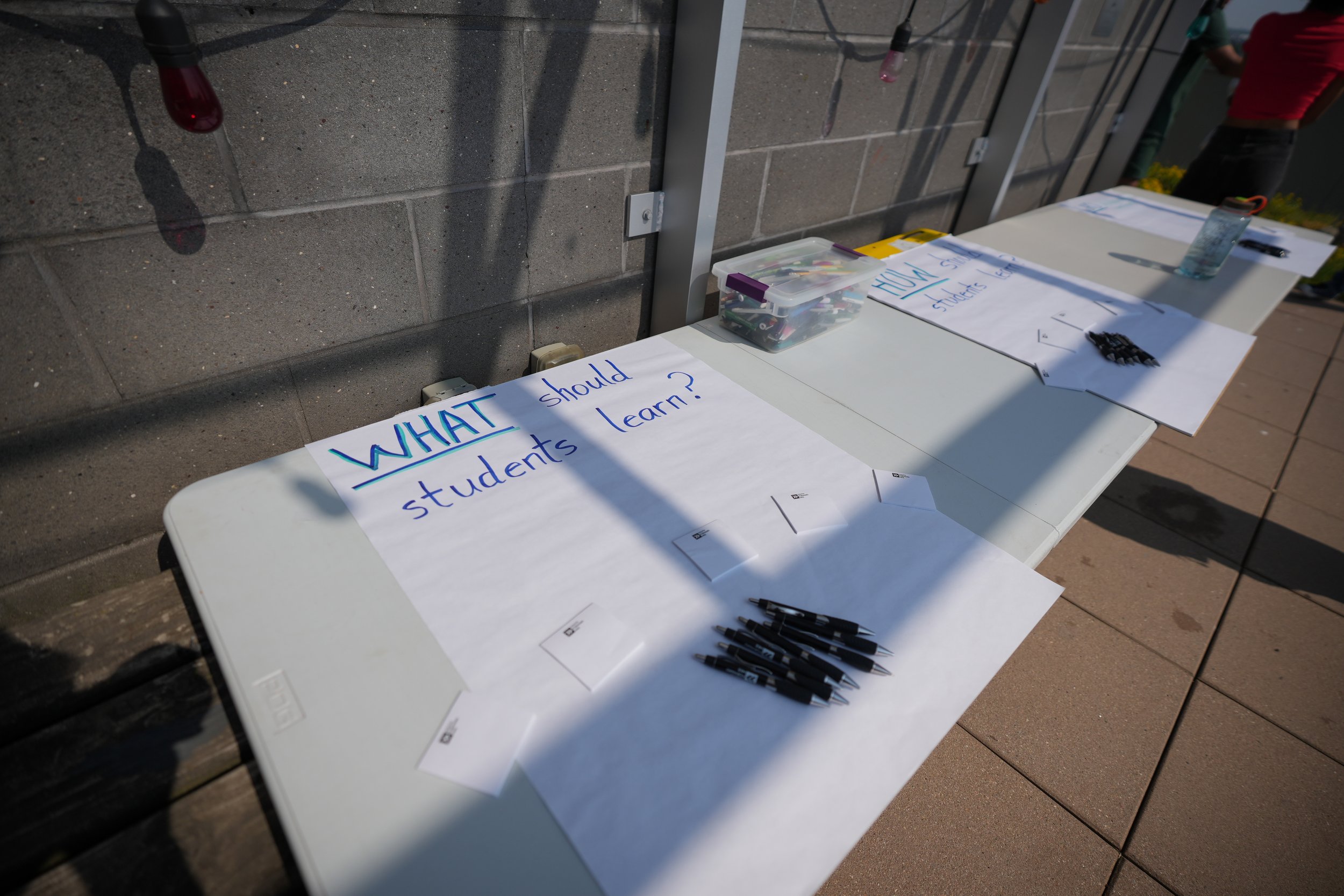
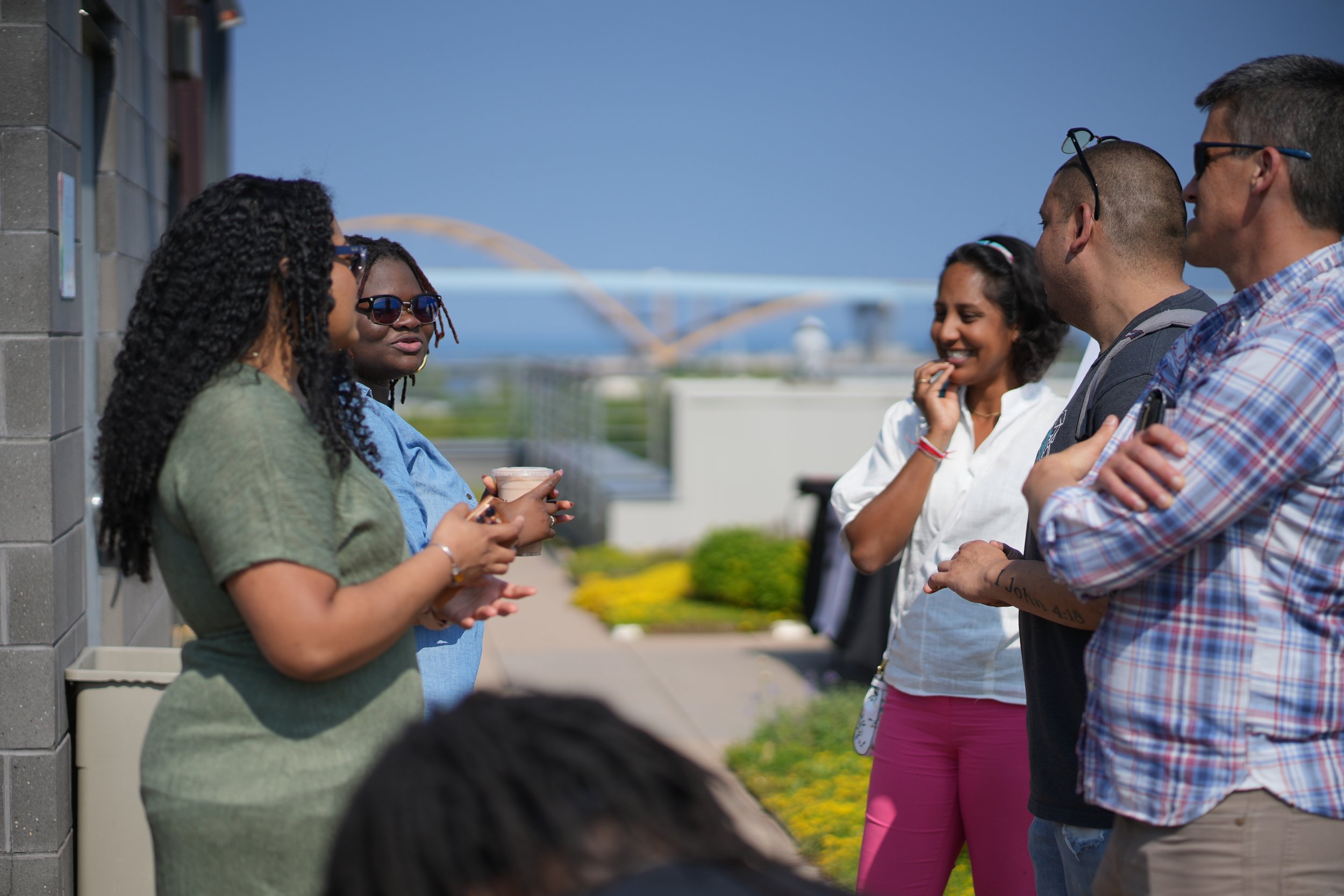
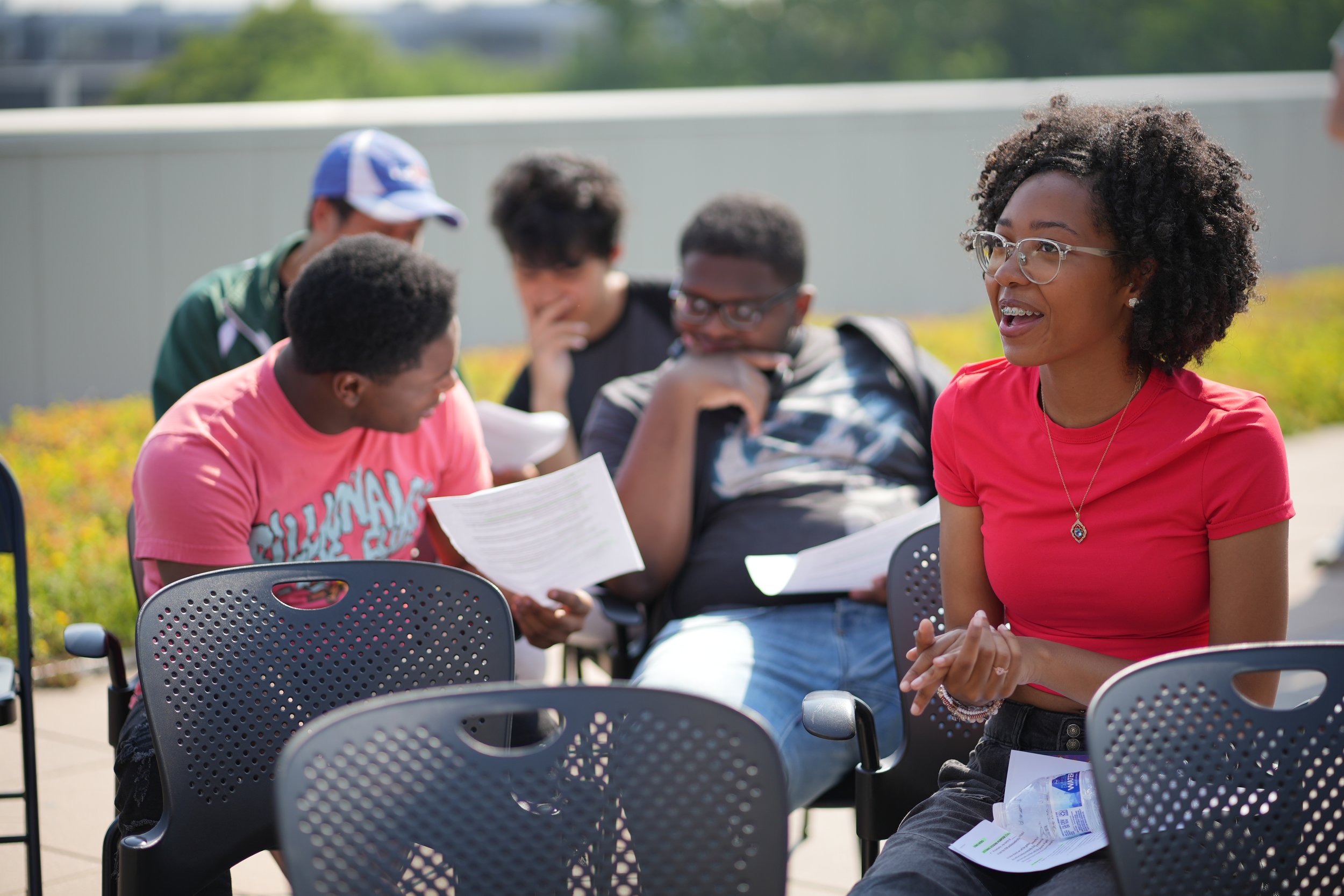
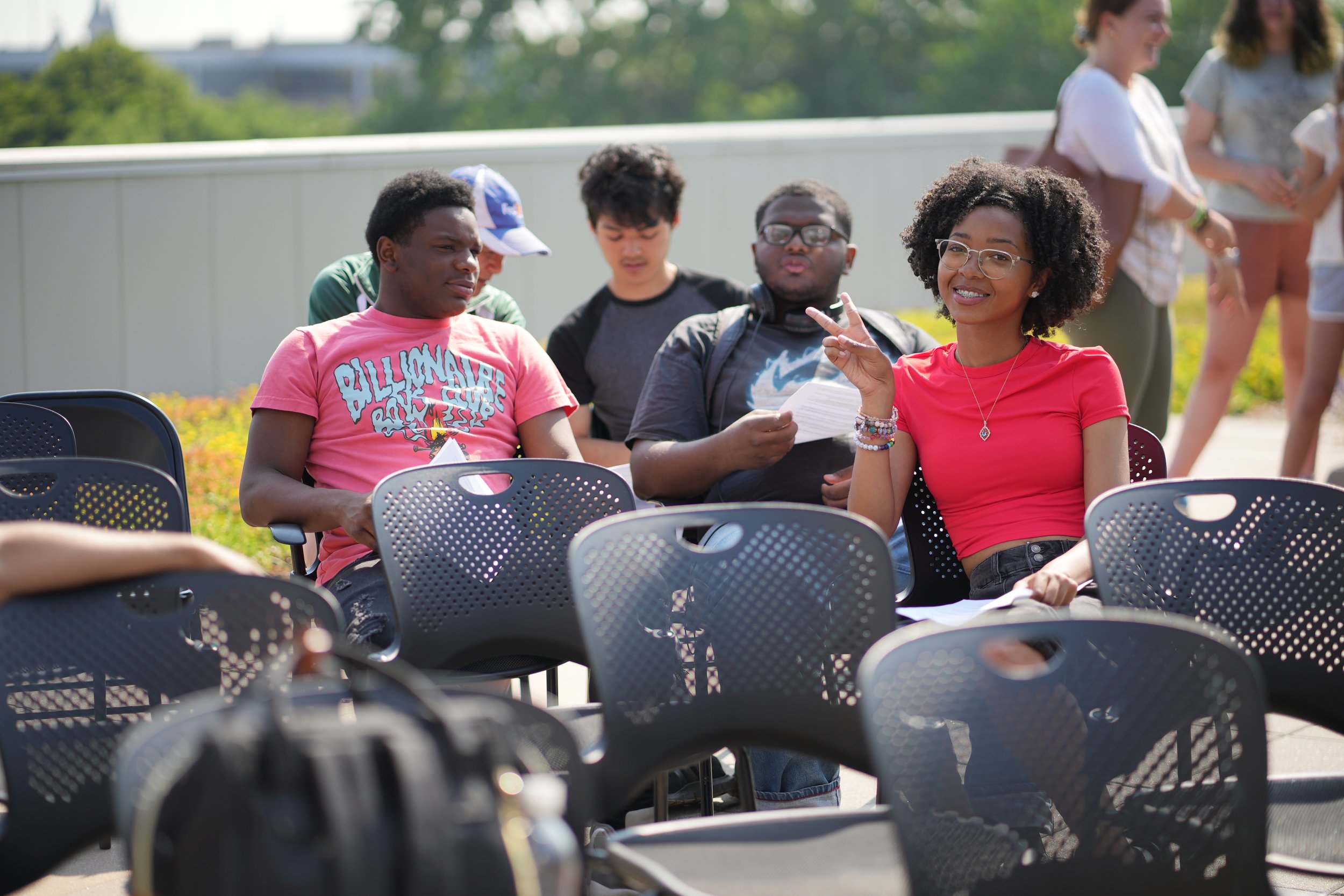
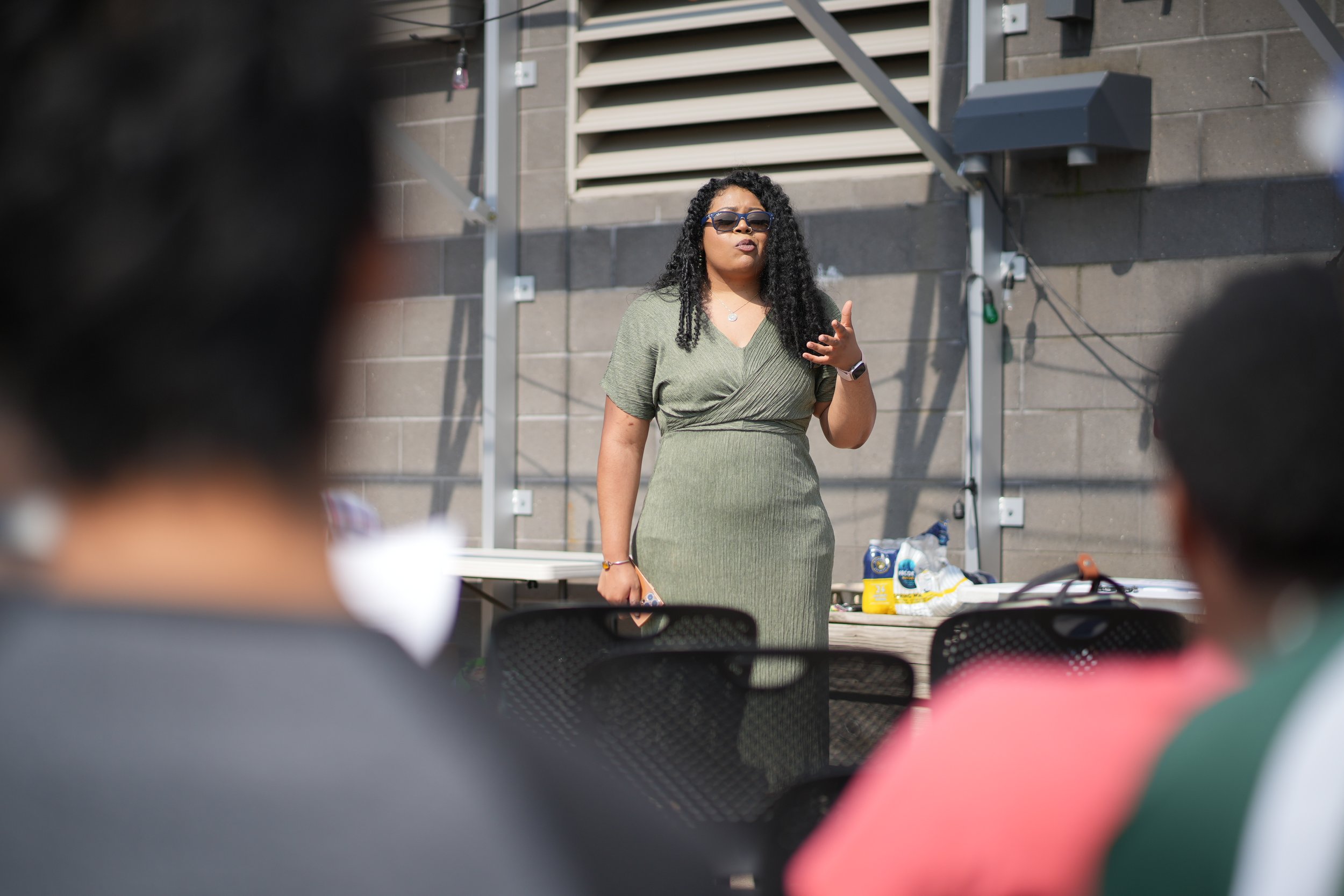
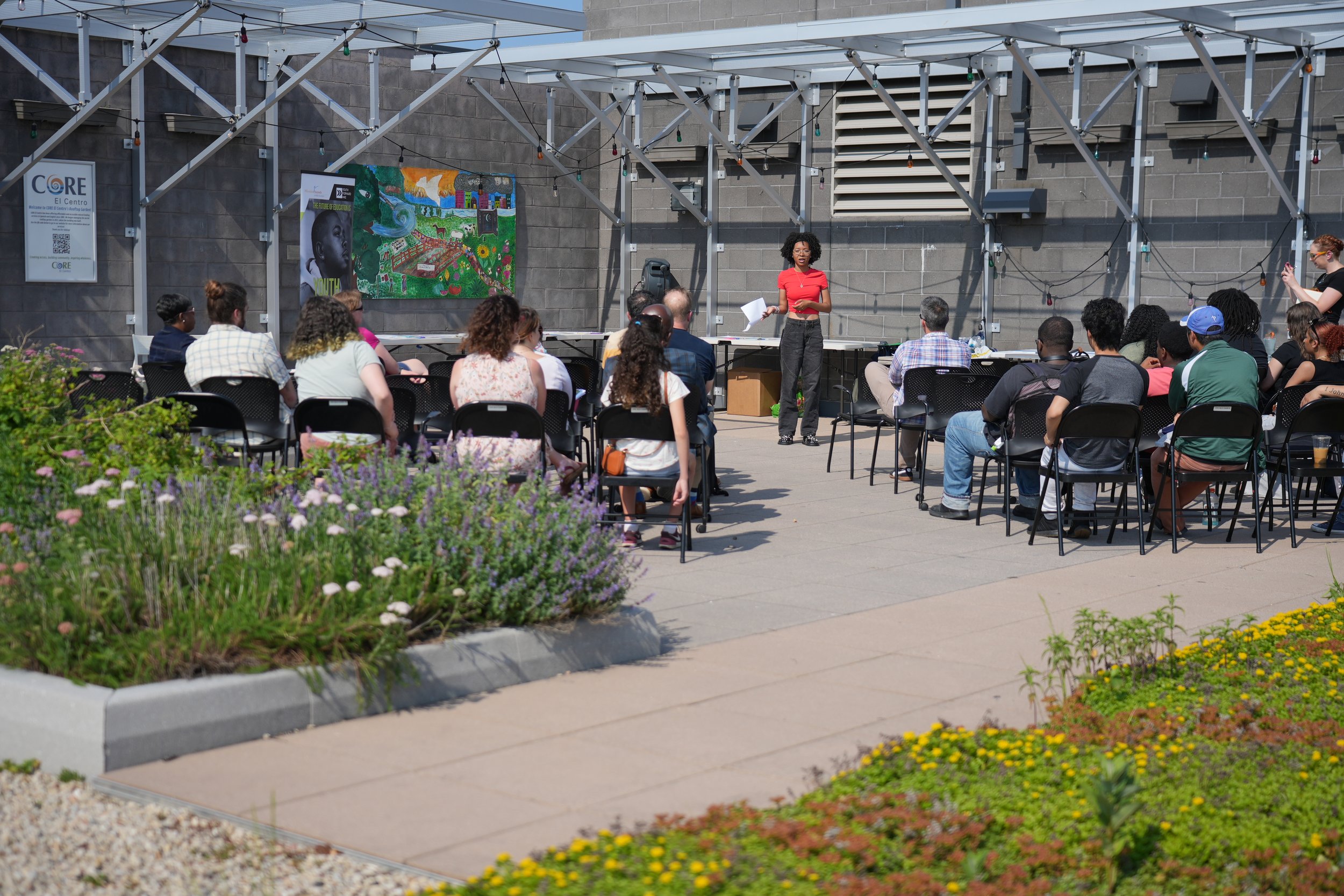
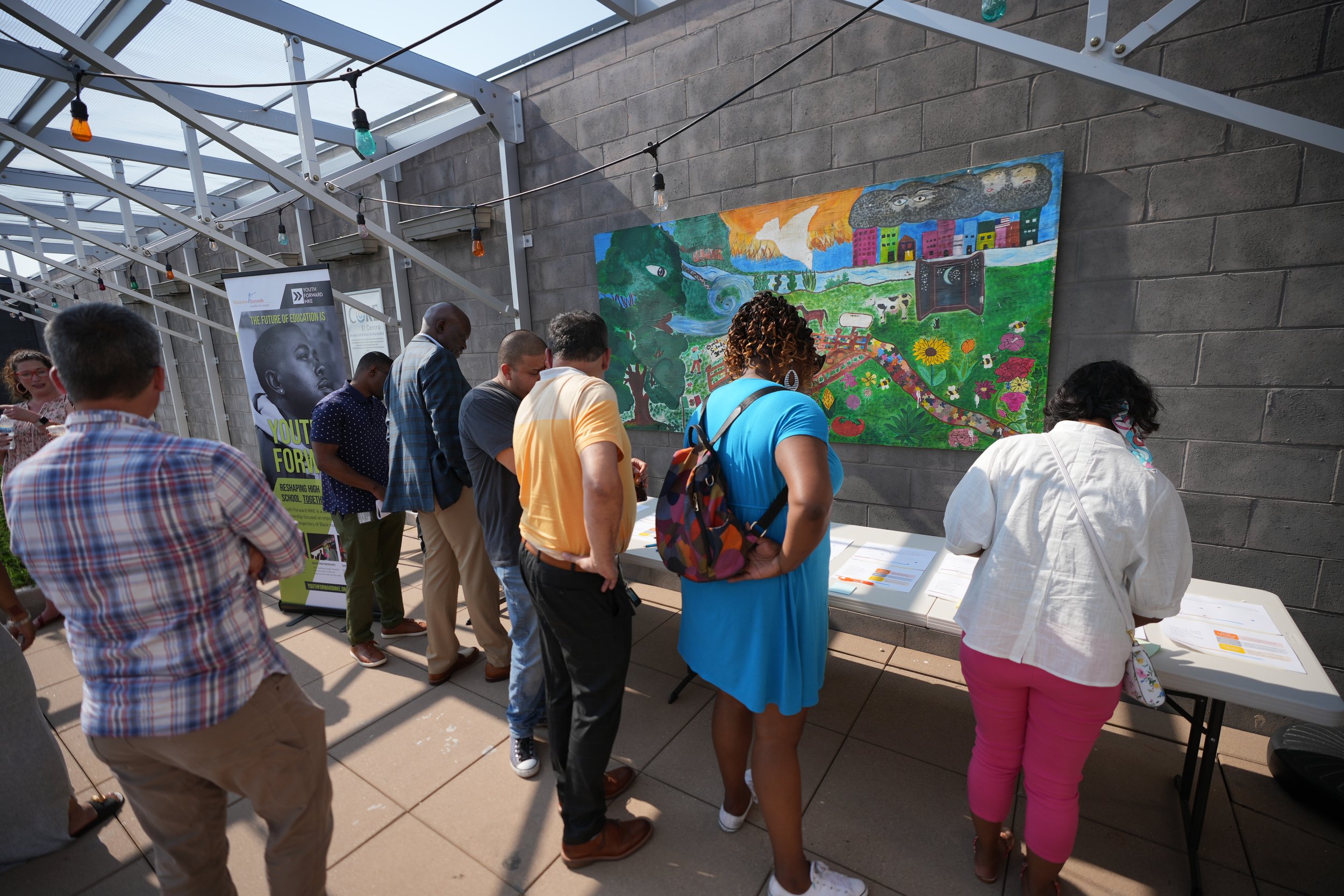
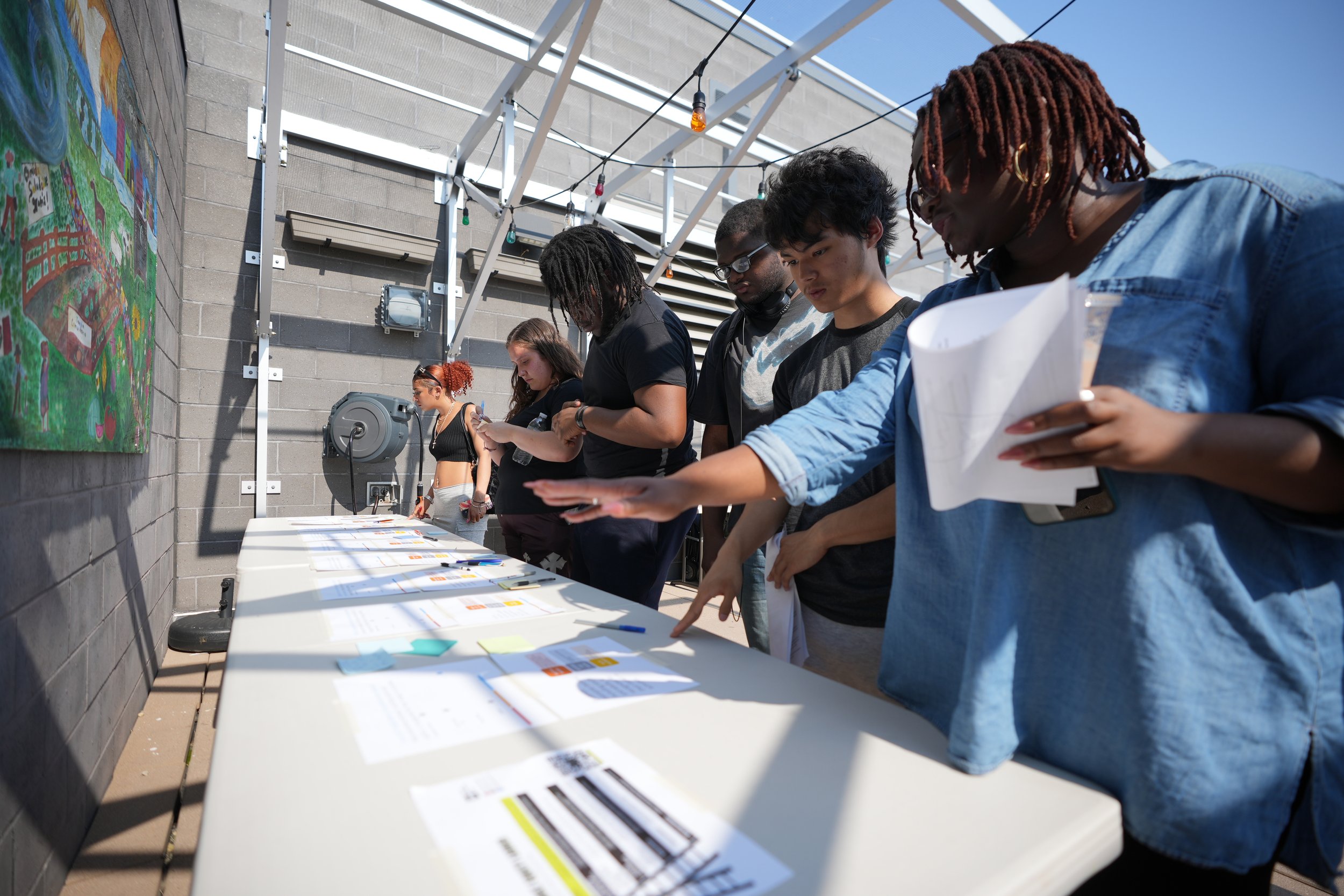
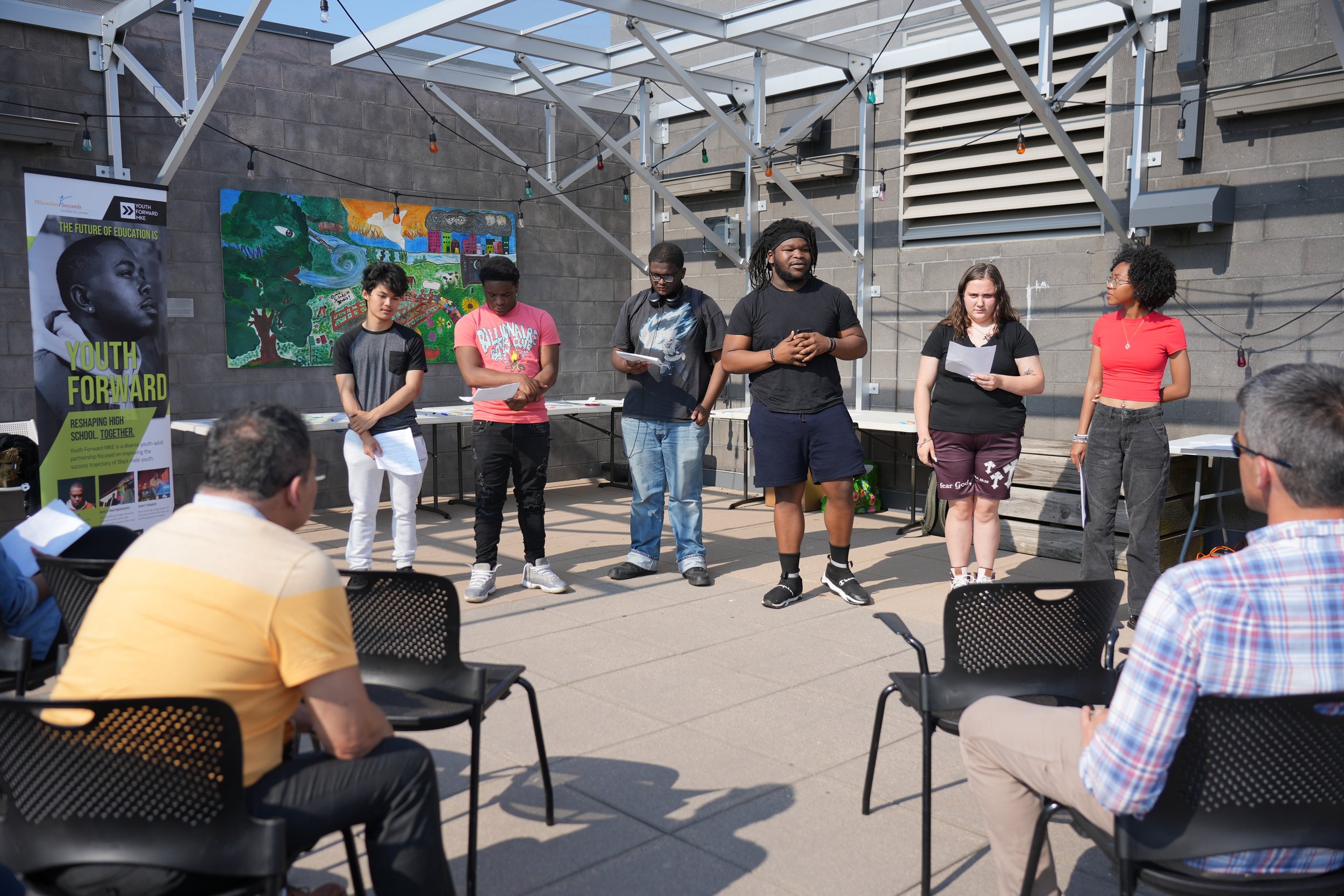
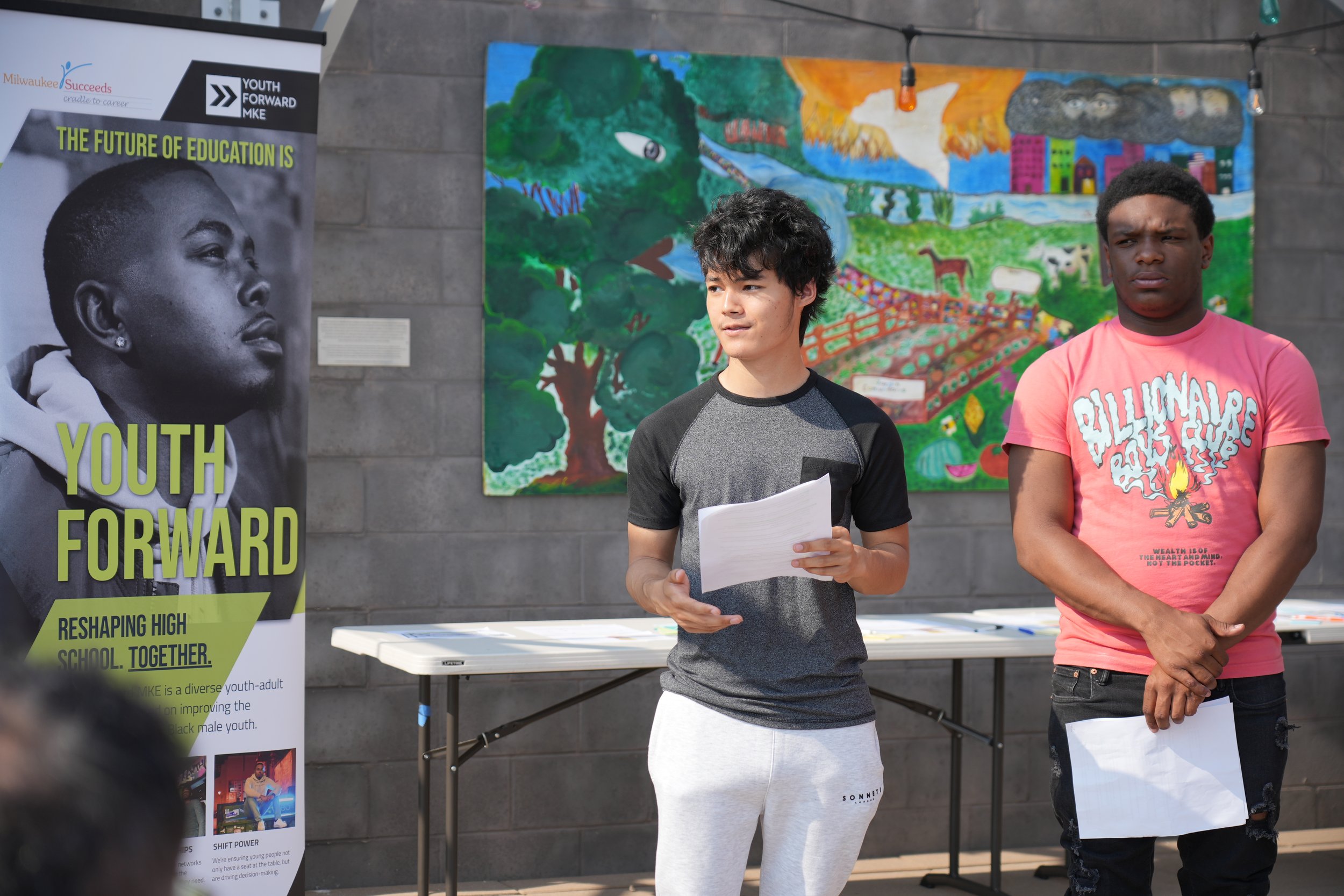
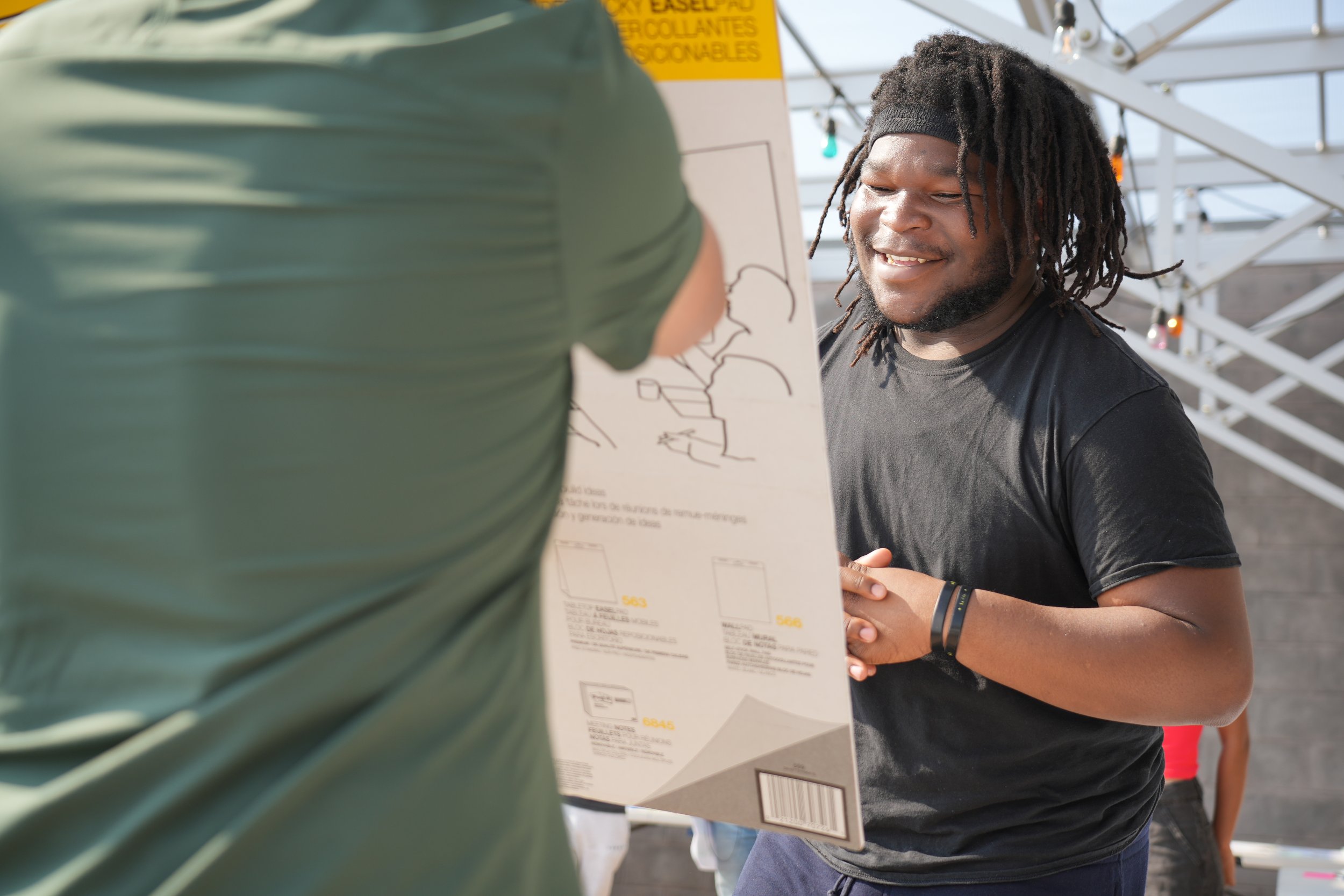
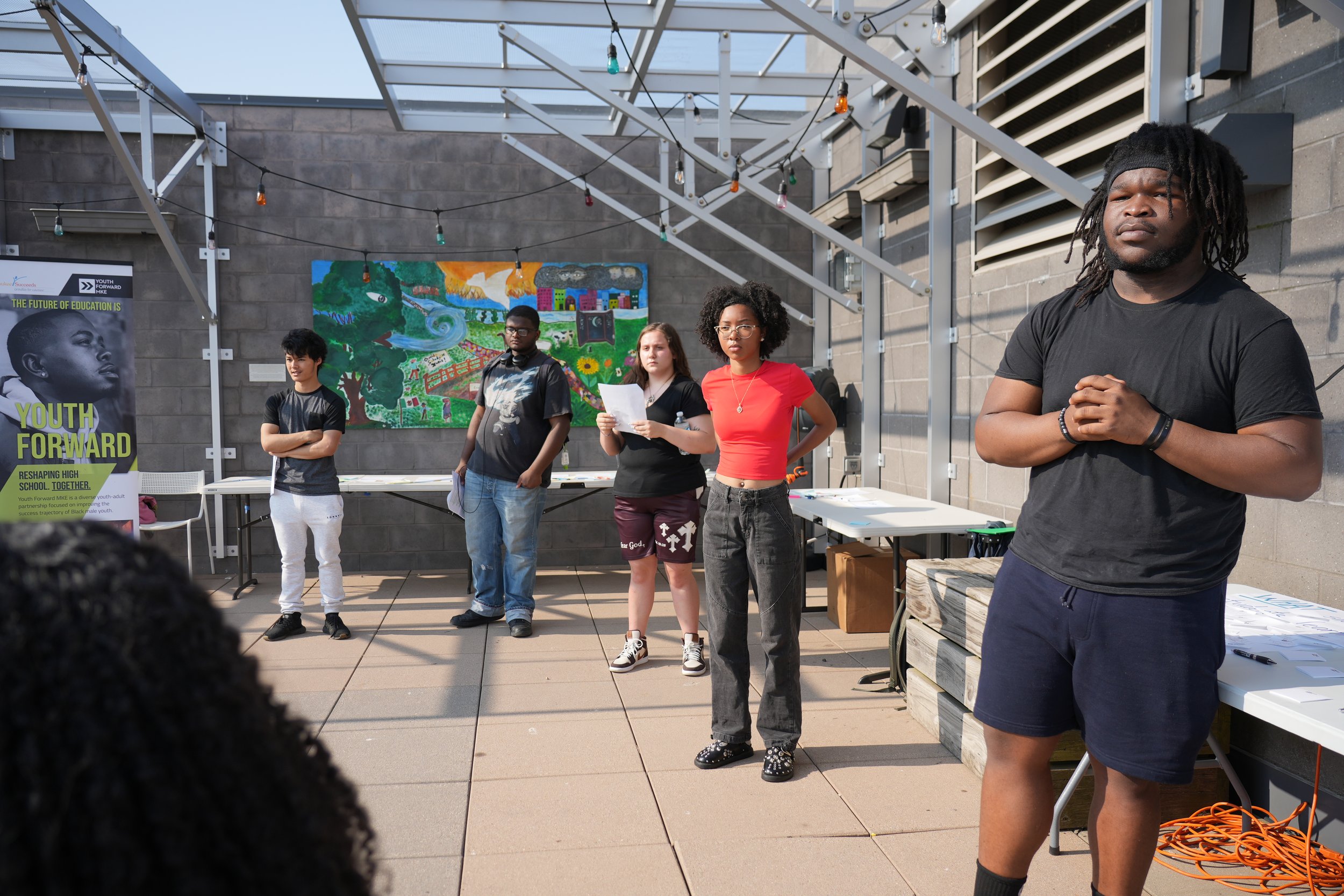
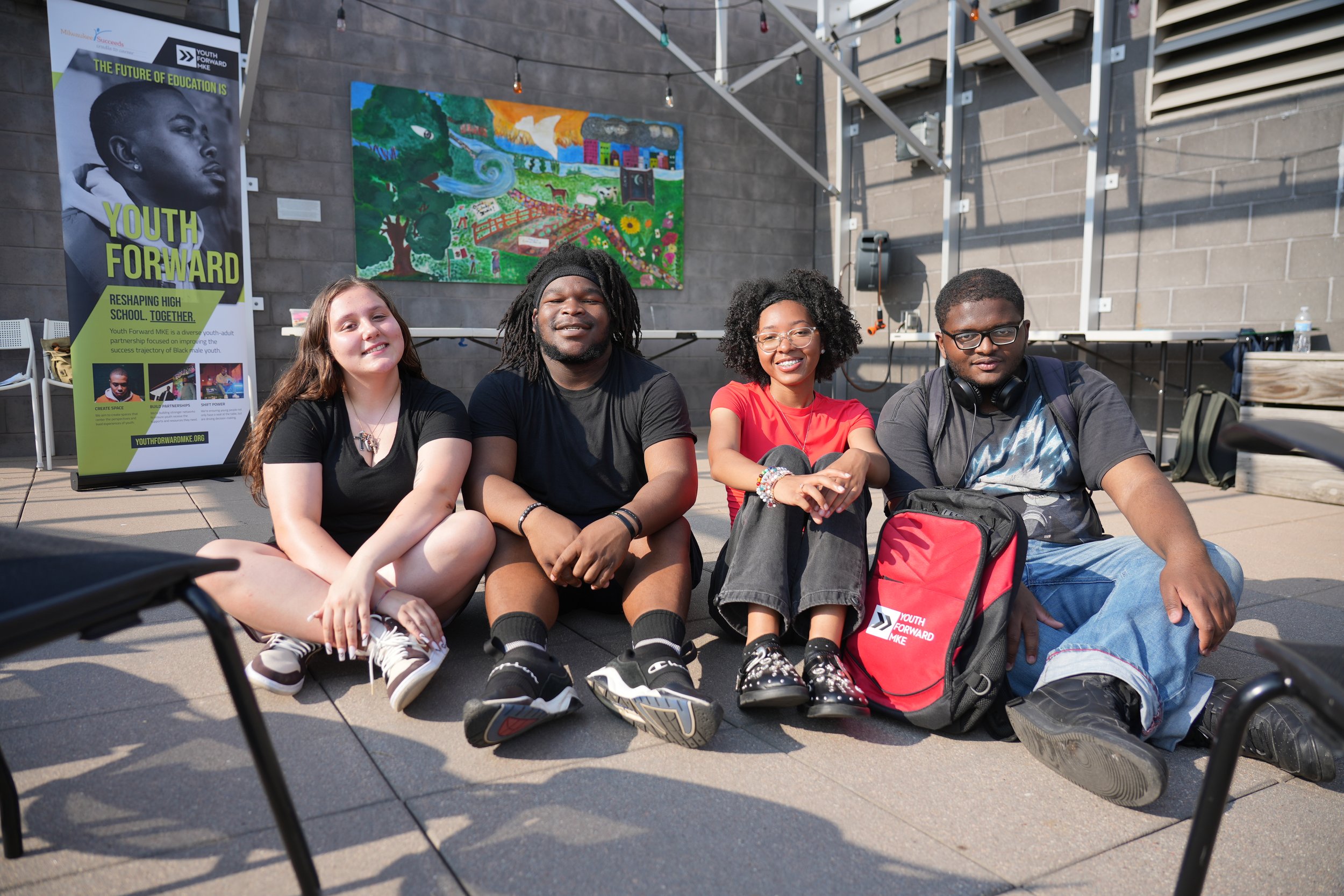
On June 21, Youth Forward MKE hosted its first ever in-person meeting, which blended youth-led discussions with immersive data and thought partnership. Despite the heat and the sun beating down on the rooftop of CORE El Centro, where the event was held, nearly 30 youth, staff and partners showed up to listen, learn and support our mission of reshaping education in Milwaukee.
Strategic Initiatives Manager Clintel Hasan grounded the meeting in the three overarching goals behind Youth Forward MKE: to build authentic partnerships, create space for lived experiences and shift power to young people.
“We know that there are many decision-making tables in this city,” she said. “We want to ensure that we’re identifying them and putting youth in those positions so we’re not only centering their experiences, but also ensuring they’re part of creating the solution and making decisions around their educational experiences.”
School Lunch Success Story
One excellent example of youth-driven change is the recent School Lunch Success Story, which chronicles the work of students at the United Way Community Schools, who took the lead in rethinking what lunch could look like for their peers. Thanks to their efforts, students now have access to microwaves, air fryers, condiment stations, spice racks, games and more, allowing them to spice up lunchtime with a healthy meal of their choosing.
“You might think ‘What does school lunch have to do with violence prevention?’ which is what funded this work,” said Director of Research Kristin Kappelman, who presented the Success Story during the meeting. “It goes great with the Community Schools model, which is that wraparound approach of taking care of students not just during the daytime but also before and after school.”
Another Success Story detailing the third and final youth-directed Violence Prevention Grant will be released later summer.
Youth Adult Equity Assessment
Kristin also shared the results of the Youth Adult Equity Assessment, a unique tool piloted earlier this year for organizations that routinely work with youth. 19 organizations completed the survey, far surpassing the initial goal of 10. Meeting attendees were invited on a “data walk” to review the results in their own time and provide feedback.
Out of 40 possible points, the average score was 25, indicating that many organizations are on the road to youth-adult equity, but there’s still a ways to go. Common areas where respondents reported success included recognizing all individuals for their contributions, establishing supportive environments and rooting their youth-adult relationships in trust. However, many organizations still feel that they’re lacking when it comes to professional development and opportunities for youth to create real change.
The data workgroup is in the process of planning a wider rollout, with hopes that each organization will revisit the questions each year to see how they’re progressing.
Design Your Future Proposal 3
Meanwhile, the nine Youth Forward MKE Ambassadors are modeling what it looks like for youth to create change. Milwaukee Succeeds’ staff and partners have spent the last few months equipping them with the tools they need to hone in on Design Your Future proposal 3, including data trainings, an educational overview of Milwaukee and a primer on what the proposal entails – creating an Autonomous Youth Council.
“Autonomous meaning you are self-governing,” explained Community Engagement Manager Sebastián Fuentes. “That means that there's essentially no hierarchy above you telling you what to do, how to act. This autonomous council will be a group of young people who are not governed by an institution, but governed by themselves and for themselves.”
Now the Ambassadors are taking what they’ve learned to the streets, soliciting youth and community feedback to help shape the structure and programming of the proposal. Over the next couple of months, they’ll be attending various community events to gather input, as well as facilitating their own in-person community listening sessions this fall.
“We need to make sure that community voice matters and that their input is centered during this process so that the proposal is culturally responsive and fits the needs and wants of the community,” said Ambassador Deh Nee.
To get to the heart of what youth and community would like to see, the Ambassadors prepared three questions: What should students learn, how should they learn it and who should they learn it from? They invited attendees to share their own thoughts on the questions, prompting a lively youth-led discussion that explored out-of-the-box ideas on education.
Participants had plenty of ideas on what students should learn through the program, including community-building, financial planning, breathwork, emotional regulation, local politics and advocacy.
“This is a good one,” said Ambassador Delonta Henderson as he read out the responses. “Healing. A lot of people go through a lot of stuff.”
Ambassador Tailus Rush tackled the second question, where attendees overwhelmingly indicated the need for a different kind of learning structure than the typical classroom setup. Hands-on and activity-based learning came up frequently, as did the idea of learning through play and outings.
Clintel echoed the call for interactive learning, citing the Student Voice Project completed in 2022. “Students said they don’t do enough hands-on learning. So they’re learning at a desk, they’re learning at a computer, they’re doing computer programs, and they’re not actually doing things physically with their bodies, either in the school or outside of the physical space.”
The idea of student-centered learning also arose, where teachers design the curriculum around the students in their classroom instead of teaching a rigid course of content each year. For the final question, who should students learn from, Ambassador Kaylee Marsh read off the responses, which included elders, lawmakers, business professionals, alumni leaders, each other and the community.
“I feel like in the school industry we haven't gotten to be things,” said one youth attendee. “Like I want to be a model. I want to be this. I want to be that. But we're not given the opportunity to actually be in that and experience it. So by the community, I mean engaging with everyone.”
Kaylee, who is in her second year as an Ambassador, shared that the reason she joined Youth Forward MKE was just that: to engage with the community and learn more about it following the pandemic.
National Conference
Three of the Ambassadors – Jy’nai Geter, Jayde Gathings, and Amaya Bauldwin – recently traveled to Detroit to learn from a broader community during the 2023 Forum National Conference. Across three days and more than 50 sessions, participants explored how different communities are approaching youth development and centering youth voice. The Ambassadors had the opportunity to share their own experiences, breaking down the Design Your Future Fellowship and the Youth Voice Ladder alongside David Emmanuelle Castillo of Equitable Systems Consultants.
“I liked it a lot,” said Amaya, “because I got to learn new perspectives and what other cities have to deal with. But I found that they were all dealing with something in terms of our education system.”
